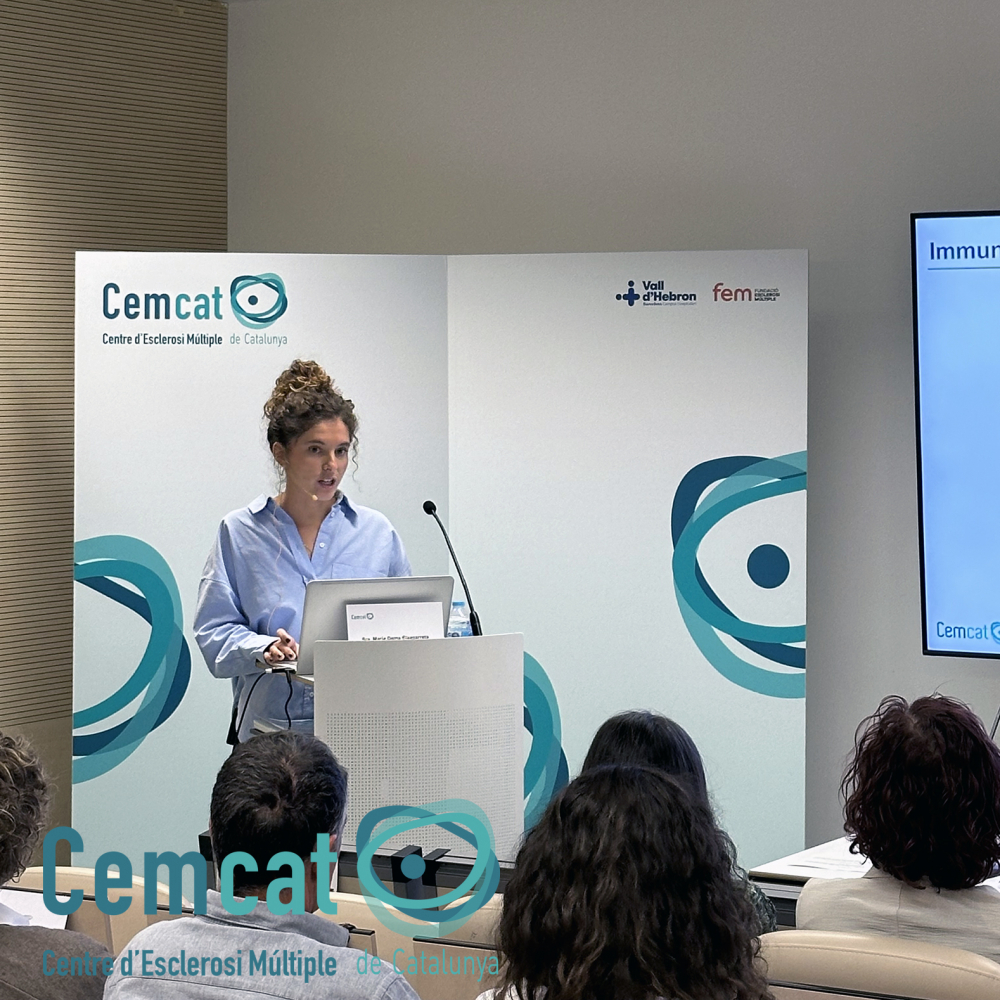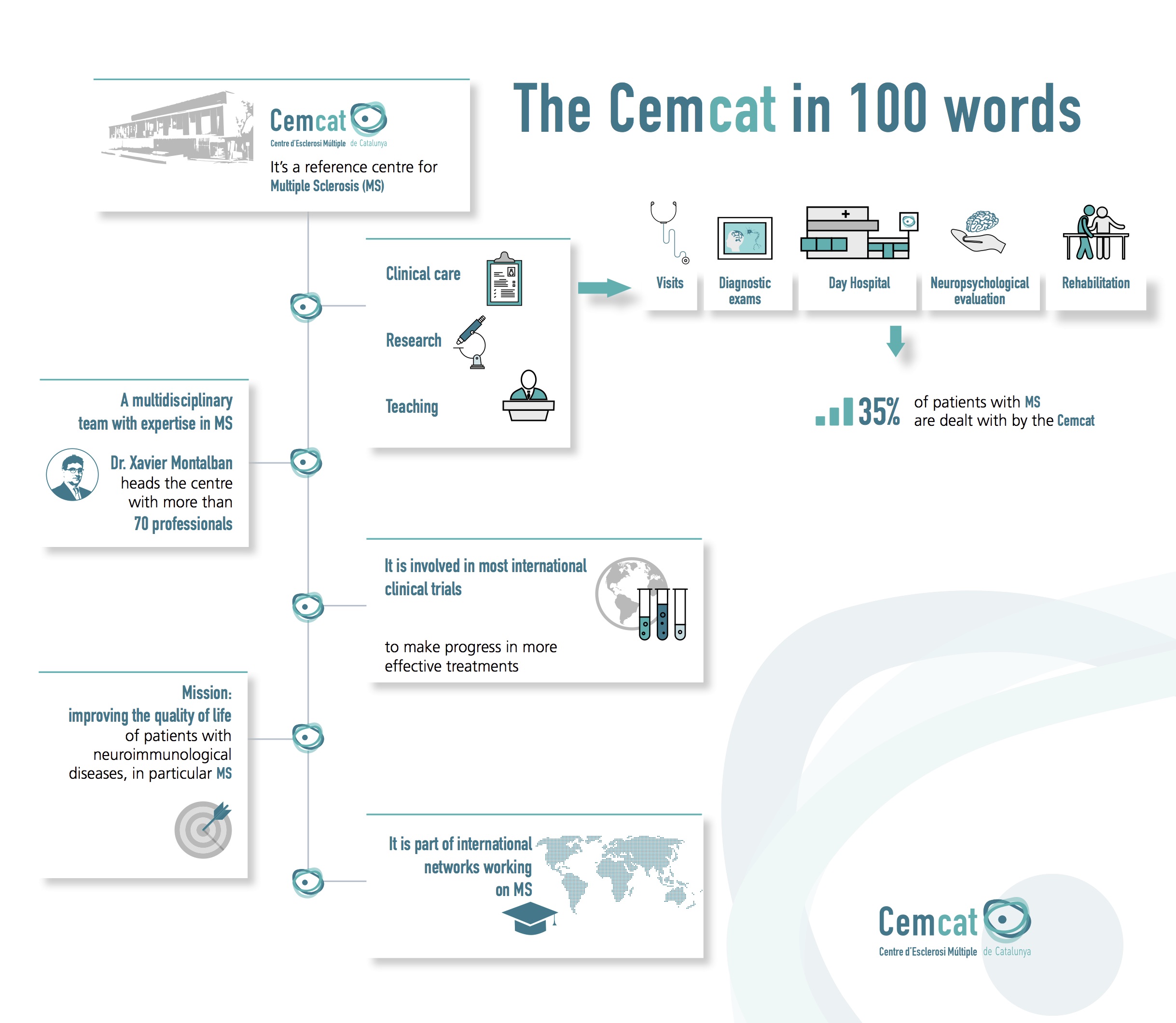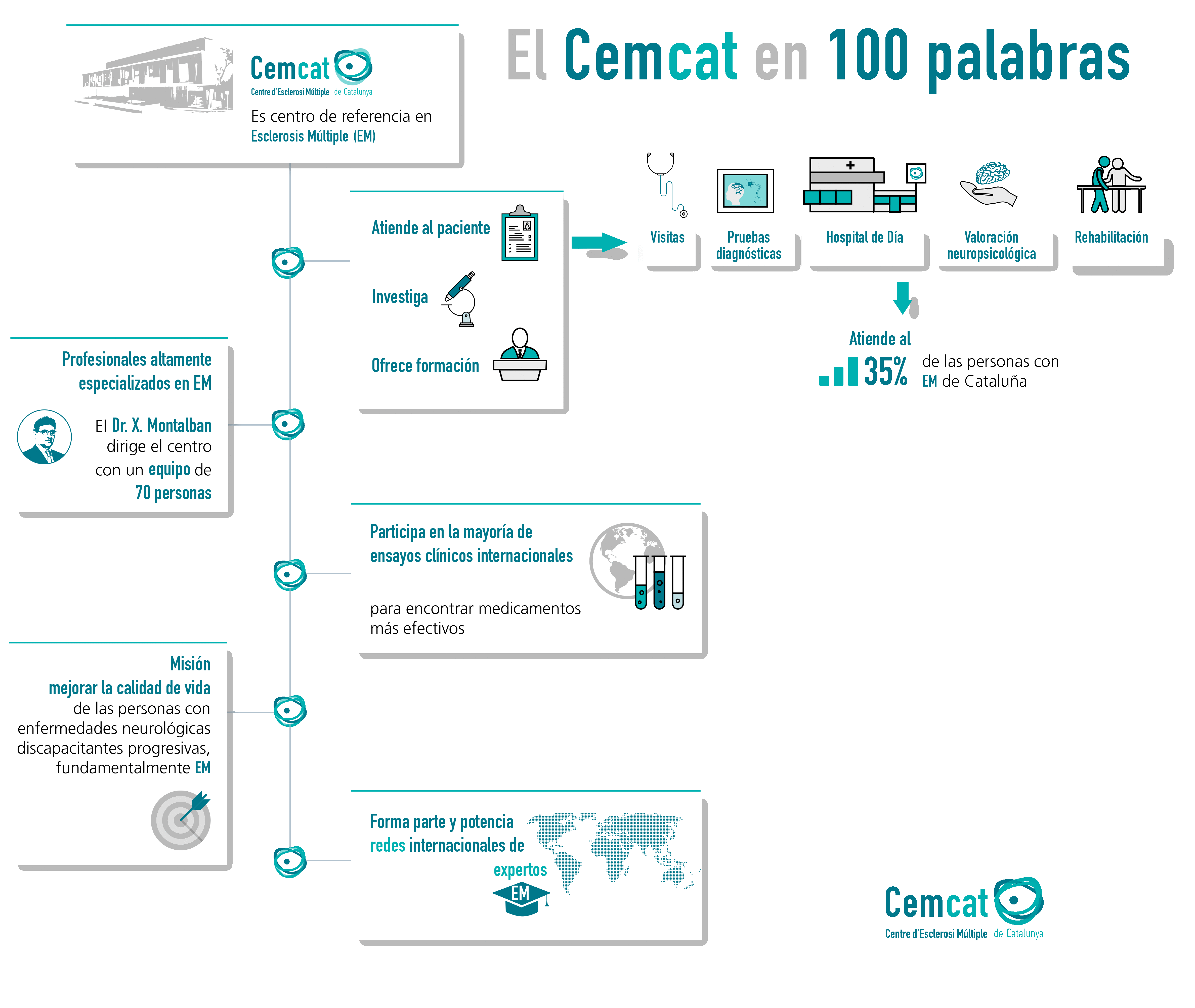You are here
María Dema presents her doctoral thesis "Immunosenescence in multiple sclerosis: innate immunity as a possible target"

Supervised by Dr. Herena Eixarch and Dr. Carmen Espejo, the research work focuses on the aging of the immune system and its impact on the evolution of the disease.
Today, at half past eleven in the afternoon, Maria Dema defended her doctoral thesis, entitled "Immunosenescence in multiple sclerosis: innate immunity as a possible target", in the auditorium of the Multiple Sclerosis Center of Catalonia (Cemcat), located at the Vall d'Hebron University Campus. The work has been supervised by Dr. Herena Eixarch, postdoctoral researcher at Cemcat and the Clinical Neuroimmunology group at Vall d'Hebron Research Institute (VHIR), and Dr. Carmen Espejo, principal investigator at Cemcat and the Clinical Neuroimmunology group at VHIR.
Multiple sclerosis is a chronic, inflammatory, demyelinating and neurodegenerative disease of the central nervous system (CNS). Although its origin is still unknown, age is an important factor influencing the course of the disease. In fact, the onset of the first symptoms at an advanced age is associated with an increased risk of presenting with a primary progressive form, a more premature evolution towards the secondary progressive form and a greater accumulation of disability. "The main objective of our study was to characterize the impact of aging on immune system function, using one of the most established experimental models of multiple sclerosis, experimental autoimmune encephalomyelitis (EAE)," explains Dema.
According to the results obtained, the evolution of the disease more severe in older animals. "This is probably due to an increase in the inflammatory response in the CNS environment, since we have observed significant alterations in the immune system, particularly in those cells involved in adaptive immunity, i.e., T and B lymphocytes", the researcher points out. "We detected changes in the ratio of naïve/memory T cells and a predominance of the proinflammatory Th1 response, as well as an increase in immune checkpoint inhibitors and the antigen-presenting capacity of B cells".
Likewise, during the chronic, post-inflammatory phase, innate immunity appears to play a key role. "We have therefore tested two treatments against this type of immunity as possible therapeutic strategies for elderly patients," Dema continues. "The first, an inhibitor of the interleukin-1β pathway, did not improve clinical EAE in any age group. However, the second drug, an antibody directed against interleukin 6, did slightly improve disease progression in the aged animals. These results open the door to further study this inflammatory molecule as a therapeutic target in EAE and multiple sclerosis."
On behalf of the management team and staff of Cemcat, we offer our most sincere congratulations to Dr. Maria Dema for the milestone achieved.




